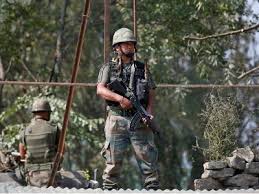Bengaluru, Sep 30: In what's being described as the first major use of the Cartosat family of satellites, the last one (2c) launched in June this year, sources in Isro said that the armed forces were aided by high-resolution images for the surgical strikes conducted across the line of control (LoC) in the small hours of Thursday. A source in Isro said: "We've been providing images to the armed forces, the army in particular. While I cannot comment if any specific image was sent on a particular day in the previous week, I can say that Cartosat images are meant for this purpose and the army has used this."
A source in Isro said: "We've been providing images to the armed forces, the army in particular. While I cannot comment if any specific image was sent on a particular day in the previous week, I can say that Cartosat images are meant for this purpose and the army has used this."
Both Isro and the Ministry of Defence (MoD) have largely remained tight-lipped about the uses of the Cartosat family of satellites—which experts call India's 'eye in the sky'—built for dual use.
The Cartosat-2C in particular added more teeth to India's military surveillance and reconnaissance capabilities, and has been providing high resolution images of 0.65 metres, an improvement over the 0.8m resolution of the earlier missions.
Area of Interest Images
"Cartosat also provided Area of Interest (AOI) based images for the armed forces," the source said. Another explained that based on requests, one or more scenes/images covering the AOI as specified is provided in as a single polygon (all the areas in one circle) in the form of a shapefile (non-topological geometry and attribute information for the spatial features).
According to the National Remote Sensing Centre (NRSC) in Hyderabad, AOI products are of two types—standard and precision-based ortho (where images taken from space are corrected to have an uniform scale—both of which are useful for the armed forces. Ortho rectified products are corrected for terrain distortions and camera tilt effects.
While the first Cartosat was launched in 2005, Cartosat-2A launched in 2007 was the first dual-use satellite with capabilities of monitoring missile launches in India's neighbourhood.
And, the Cartosat-2C is the best in the class that India boasts of although countries like the US and Israel boast of better ones. This satellite can not only click pictures of areas of interest, but also record videos of sensitive targets from space, compress it, and relay it back to earth.
Search
Surgical strikes: Isro provided satellite images
September 30, 2016







Comments
Add new comment